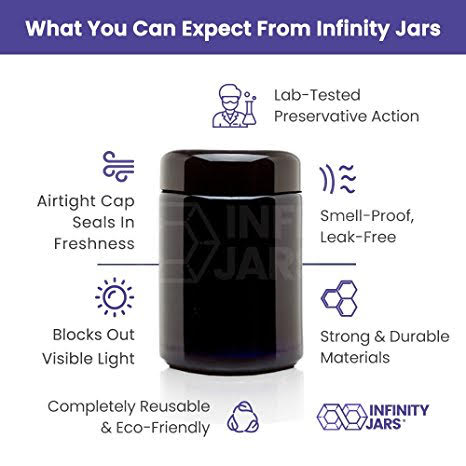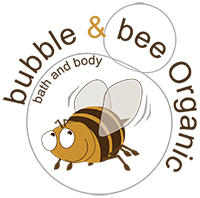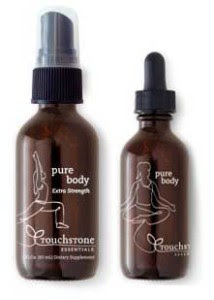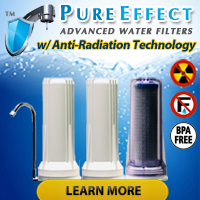
Water | Resources
How to Get Information About Products
I want to post this story for two reasons.
One is to give you a glimpse of how I get whatever information there is about products and the other is to show how inadequate information is about products.
A woman contacted me today for a consultation regarding choosing a sofa for her teen’s bedroom.
She wrote to me:
Hi Debra,
I’ve noticed both Pottery BarnTeen and Ikea no longer treat the foam in their sofas with flame retardent chemicals.
Pottery Barn Teen also informed me that the fabrics are not treated with any chemicals and the sofas are not treated with any chemicals.
When looking for a more cost effective alternative to custom furniture is this a good option and is it safe?
Thank you! Look forward to your feedback!
I took a look at the Pottery Barn Teen website and didn’t see any information on materials at all.
I offered to call Pottery Barn Teen for her and she accepted. She said, “That would be great if you could call them. They usually don’t have the answers though.” I thought I could get some answers.
She told me the specific sofa she wanted and I called.
I called Customer Service and asked about the fabrics.
First I asked about the fiber. I asked if there were any natural fibers. All were synthetic except for one, a 100% cotton denim.
Then I asked about the finishes on the fabric. She put me on hold to connect me to the furniture department, which has a different database than customer service.
And here’s what I found out.
- All the fabrics are synthetic except the washed denim, which is 100% cotton.
- The woman in the furniture department also said “There are no chemicals on the fabric.”
- BUT the fabric DOES have a Scotchguard finish on it. (Hmmmm. They don’t understand Scothguard IS a finish that emits the toxic chemical formaldehyde.)
- The inside of the cushions are polyurethane foam WITH FIRE RETARDANT. No FR on the fabric, but it is on the foam.
- No info on wood or finishes.
I couldn’t recommend this product. Incomplete information. But what I could find out was enough for me to reject it as toxic.
My client said, “Wow. That’s unbelievable. Company touts that no fire retardants on foam. Scotch guard not good either.”
Exactly.
It took about half an hour to get this information.
I’m not picking on Pottery Barn here. This morning I called West Elm about a finish on a bed frame another reader asked about and I couldn’t find out if the finish was water-based or oil-based. There is a BIG difference between the two in terms of outgassing toxic chemicals and the length of time they continue to outgas.
These companies and others need to give us sufficient information to evaluate the toxicity of their products.
Please note it’s been my experience that I have no problem getting all the information I want from businesses that are making toxic-free products. They know their materials and are proud of them.
Infinity Jars
 The largest collection of unique styles of ultraviolet glass jars that preserve the freshness of foods, herbs, and other organic materials. “We guarantee you can leverage the incredible power of these jars to maintain the optimum freshness of nearly any foodstuff, dried good, lotion, or essential oil.”
The largest collection of unique styles of ultraviolet glass jars that preserve the freshness of foods, herbs, and other organic materials. “We guarantee you can leverage the incredible power of these jars to maintain the optimum freshness of nearly any foodstuff, dried good, lotion, or essential oil.”
Bubble and Bee
 Certified organic personal care products made by a certified organic processor of personal care products. Choose from organic deodorant, facial care, toothpaste, lotions, soaps, lip balms, insect repellent, hair care, scrubs, and more, all available in a delightful assortment of fragrances and flavors using organic and natural essential oils. Their goal goes beyond selling products to informing others about the importance of staying away from the dangerous chemicals “in our world of fancy products with entrancing colors and fragrances.” ITo inform people of the hazards of Chemicals in Personal Care Products, their Chemical of the Day Blog gives accurate and concise information regarding cosmetic chemicals. They believe that organic products shouldn’t be just for those who can afford them, but for everyone who wants to live in a safer, more natural world, so they strive to offer reasonable prices and approachable products. At Bubble and Bee Organic, they say “We Make Organic Fun!”
Certified organic personal care products made by a certified organic processor of personal care products. Choose from organic deodorant, facial care, toothpaste, lotions, soaps, lip balms, insect repellent, hair care, scrubs, and more, all available in a delightful assortment of fragrances and flavors using organic and natural essential oils. Their goal goes beyond selling products to informing others about the importance of staying away from the dangerous chemicals “in our world of fancy products with entrancing colors and fragrances.” ITo inform people of the hazards of Chemicals in Personal Care Products, their Chemical of the Day Blog gives accurate and concise information regarding cosmetic chemicals. They believe that organic products shouldn’t be just for those who can afford them, but for everyone who wants to live in a safer, more natural world, so they strive to offer reasonable prices and approachable products. At Bubble and Bee Organic, they say “We Make Organic Fun!”
Is the Honest Company Actually Dishonest?
This past week Jessica Alba’s Honest Company has been in the news, after the Wall Street Journal tested their laundry detergent and found sodium lauryl sulfate (SLS).
This wouldn’t be so bad (Seventh Generation laundry detergent contains SLS), except for the fact that Alba specifically said that SLS was toxic and her products did not contain the ingredient.
Honest Company says there is no SLS in their product, yet the Wall Street Journal says there is.
People have been quick to assume that the company is being dishonest on one test from one source.
Sounds to me like there needs to be some random sampling done of bottles of detergent off store shelves, by an independent third party testing organization.
I just want to add that I’ve not ever recommended the Honest Company because there are less toxic products than theirs available. I took a new look at their ingredients this morning and their personal care products, for example,, contain many industrialized ingredients. Compare this to other companies that are offering products made from “whole” organic ingredients. And one step further, this morning I just added a new page for companies making body care products where the business is certified as an organic processor of organic ingredients.
Dish Drying Rack at Ikea
Question from TA
Hi Debra,
I just came across this dish drying rack on Ikea’s website. www.ikea.com/us/en/catalog/products/80213173. It comes in this darker color and in a silver color that is listed as nickel plated with clear lacquer. That seems more likely to be potentially toxic (what is the lacquer, etc), so I’m just looking at the darker colored one. The product description says “Steel, galvanized” — but this seems to pertain to the water-catching tray rather than the wire rack.
I clicked over to this related product, and it identifies the black wire part as steel with powder coating and the “shelf” (I’d call it a tray) as galvanized steel. That seems more accurate and appears to be the same as the dish rack. www.ikea.com/us/en/catalog/products/10238148
Would you consider this powder-coated steel rack and galvanized tray to be safe?
On a side note, I also noticed on Ikea’s site that they have been in the process of using “more sustainable” cotton in their products. Not organic, but grown in ways that use less water, less chemical fertilizer, less pesticide. It seems like a good step, especially for those of us who can’t get organic everything. www.ikea.com/ms/en_US/this-is-ikea/people-and-planet/energy-and-resources/index.html#cotton
Debra’s Answer
Powder-coated steel and galvanized steel are both materials I consider to be safe for their intended uses. Neither outgas toxic vapors into the air and they wouldn’t leave toxic residues on dishes. I wouldn’t eat it however, and it’s probably not designed for continuous skin contact.
That’s great that IKEA is moving in the direction of more sustainable cotton. Every step toward reducing toxics helps!
Glyphosate in Sugar Cane Paper?
Question from Mary
Hi Debra,
There is paper made from sugar cane, but isn’t sugar cane one of the crops grown from GMO and so wouldn’t the paper have residues of glyphosphate?
Debra’s Answer
I love sugar cane paper and was just about to buy some.
“GMO sugar can exists but is not widely used.” www.theorganicprepper.ca/sweet-life-how-to-source-non-gmo-sugar-for-your-pantry-11282012
So while I can’t say there is no glyphosate contamination from the environment, it isn’t routinely used on sugar cane crops.
Facts For Fighting Dryer Sheets
Here are some references about the toxic dangers from dryer sheets. Please add a comment with any others you know about.
THE HEALTH WYZE REPORT: The Toxicity of Dryer Sheets, Fabric Softeners, and Laundry Detergents
Are There Heavy Metals in Your Garden?
Heavy metals have been detected at high levels in Portland residential neighborhoods, around two glass factories.
Environmental authorities are recommending that citizens should avoid eating produce grown within a half=mile of the highest mapped metal concentrations until further notice.
Home gardeners nationwide are now asking questions about heavy metals in garden soil.
Read more about heavy metals in garden soil and if you need to test your soil…
CIVIL EATS: What Portland’s Soil Crisis Can Teach Us About Heavy Metals in the Garden
 While your soil may be just fine, it also may be contaminated with heavy metals. If so, your, your body may have built up a store of lead and possibly other unknown heavy metals that could be affecting your health.
While your soil may be just fine, it also may be contaminated with heavy metals. If so, your, your body may have built up a store of lead and possibly other unknown heavy metals that could be affecting your health.
Once heavy metals enter your body, it is very difficult for your body to remove them.
That’s why I take PureBody Liquid Zeolite every day. This natural mineral is uniquely suited to remove heavy metals. Tiny bits of negatively-charged zeolite act like little magnets to attract positively-charged particles—which include 99.9% of heavy metals, radiation, and organic chemicals–so they can be removed from your body via your kidneys. It’s simple, effective, and affordable.
Another Reason To Have A Water Filter
We know about chorine and fluoride and heavy metals in tap water, but does your water have 1,2,3 Trichloropropane (1,2,3TCP)?
After all the news about water problems in Flint, Michigan, a reporter decided to actually read the “consumer confidence report” for her drinking water. And she found this footnote in tiny print:

And it’s not just her local community in Fresno, California. 1,2,3-TCP has been found in about a hundred public water systems in California.
But neither the state nor the federal EPA regulates 1,2,3-TCP in drinking water. So public utilities don’t have to test for it, filter it out, or advise their customers if it’s in the water.
Again, my best recommendation is to filter your drinking and bathing water at home, using a filter that removes a broad spectrum of pollutants.
KQED: There’s a Concer-Causing Chemical in My Drinking Water, But California Isn’t Regulating It
 If you are drinking tap water, it’s likely that it contains chlorine or chloramines, fluoride, heavy metals, perhaps radiation, and unknown contaminants of various sorts.
If you are drinking tap water, it’s likely that it contains chlorine or chloramines, fluoride, heavy metals, perhaps radiation, and unknown contaminants of various sorts.
Your best protection is to get a water filter that removes a broad spectrum of known pollutants and unknown contaminants.
The water filter I use in my own home is made by Pure Effect. It’s state of the art filtration removes just about everything that might be in your water that you don’t want to put in your body.
Learn more about Pure Effect water filters here…
Cangshan Knives
Question from Michelle Bishop
Hi Debra,
I just ordered a Cangshan N series (hollow center in handle, solid metal knife) from Amazon. All the reviews are good but they’re from Aug 2015 and forward so it seems these knives are not long-established. They got an NSF certification (I verified on the website) but I wanted your thoughts on the metal and its safety.
Debra’s Answer
The material is simply stainless steel.
I usually don’t recommend stainless steel, because heavy metals can leach from it. However, leaching requires contact time, and there is very little contact time with a knife.
I myself use knives with stainless steel blades and I am not concerned about this.






